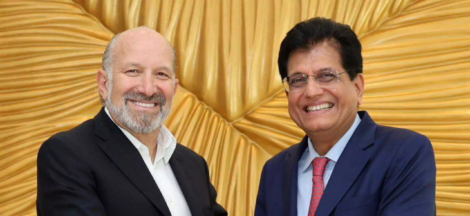NEW DELHI: India’s economy is expected to grow at 6.5% in FY25, mainly driven by the government’s capital expenditure push, softness in global commodity prices and “healthy” corporate performance, India Ratings and Research (Ind-Ra) said in a report on Thursday.
The projection, however, is sharply lower than the Reserve Bank of India’s (RBI) forecast of 7% GDP growth next year. In FY24, the National Statistical Office has projected India’s economy to grow at 7.3%.
Despite the base effect, the sequential GDP growth indicates that the economic recovery is on track, said the report while adding that there are prospects of a new private corporate capex cycle in the next fiscal year.
“Private (corporate sector) investments have been down and out for nearly a decade,” said Sunil Kumar Sinha, principal economist, Ind-Ra. “But when we look at lead indicators, all of them are indicating that at the current juncture the private corporate sector is once again becoming more bullish about investments.”
According to Ind-Ra, the private sector raised Rs 3.56 trillion to fund 982 projects in FY23 – which is substantially higher than Rs 1.98 trillion raised to fund 791 projects in FY22.
The RBI in its latest bulletin had mentioned that the total cost of projects, for which loans were sanctioned by major banks stood at Rs 2.4 trillion during April-December 2023, 23% higher on year.
The gross value added (GVA) growth in FY25 is expected to moderate to 6.4% from 6.9% this year. Within GVA, the agriculture sector’s growth is seen rising to 3% from 1.8% in FY24, while industry’s growth is expected to ebb to 6.5% from 7.9%. Service sector’s growth is also seen slowing to 7.3% in FY25 from 7.7% in FY24.
That said, Ind-Ra highlighted that GVA growth in FY25 would be affected by the rise in Wholesale Price Index (WPI) inflation. WPI after remaining in deflation from April-October FY24 has turned into inflation since November. “A rise in input cost, if not adequately passed into output prices, will reduce value addition/corporate margin. Given that consumption is not broad-based, producers will find it difficult to pass on the higher input cost to output prices”, said Sinha.
Source: The Financial Express



